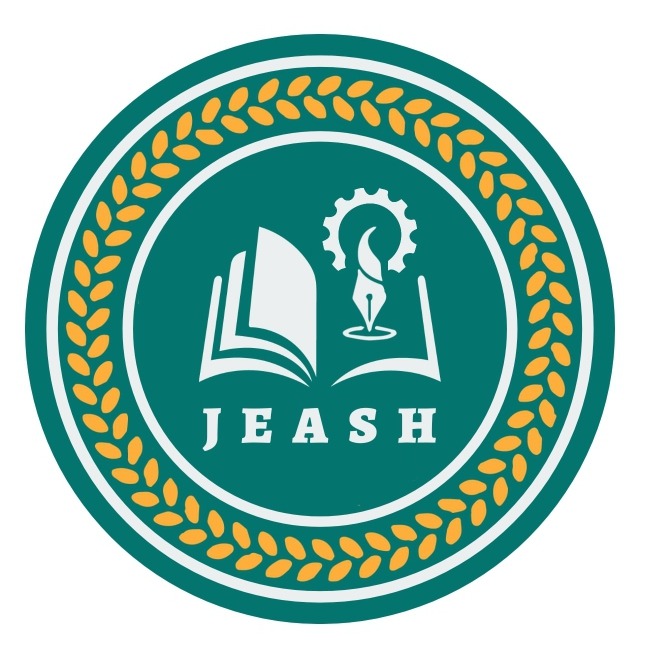Main Article Content
Abstract
This paper focuses on typical address forms of the Kolangꜫ language (a Gur member of the Niger-Congo classification) in the socio-linguistic context of the language use of the people. Astrit Maria and Sudirman William (2019) express that, “address terms indicate the speaker’s attitude, intention, as well as a relationship with the addressee that someone is talking to”. This paper principally explores how native speakers of Kolangꜫ appropriately address one another using varied address terms. Address terms in the domains of kinship, occupation, age, formal titles, status description, religion, intimacy, respect, nicknames, and mockery are examined. Attempts were made to explain, discuss or give meanings to the various address forms used in every situation from the sociolinguistic perspective. The data collection techniques I used were observation (both participant and non-participant), unstructured interviews, informal conversation, and my own introspection as a native speaker. The main finding from the analysis of data was that the Kolangꜫ speaking group as any other tribe has its own way of addressing members in that tribe and that the typical address forms used by native Kolangꜫ speakers are appropriate names or titles or reference terms used to show politeness, deference, solidarity, intimacy, mockery, and familiarity when speaking to or addressing someone. This, however, depends on the relationship between the addresser and addressee, the speaker’s intention, the setting of the encounter, and the subject being discussed. The study result has implications for the sociolinguistic analysis of address forms in relation to European and non-European (African) linguistic cultural settings.
Keywords
Article Details

This work is licensed under a Creative Commons Attribution 4.0 International License.
References
- Aceto, M. (2002) Ethnic Personal Names and Multiple Identities in Anglophone Caribbean Speech communities in Latin America Language in Society 31(4):577-608
- Afful, J.B.A. (2006). Address Terms Among University Students in Ghana. A case study: Language and Intercultural Communication 6(1):76-91
- Artika, Ratna P. (2008) An Analysis of the use of Intimate Address System in the Drama Films (A Sociolinguistic Approach). Unpublished Research Paper. Surakarta: Muhammadiyah University of Surakarta.
- Astrit Maria and Sudirman William, (2019), The choice of Address Terms at the workplace by Intercultural English speakers and its Pedagogical Implications. Int J Recent Sei Res. 10(03), pp. 31508-3151 Do/:http://dx.doi.org/10.24327/ijrsr.2019.1003.3274
- Best,W.J. and Kahn, V.J .(2006). Research in Education (10th Ed.) Pearson Education Inc
- Bisilki,A.K, (2017). A Sociolinguistic Analysis of Kinship Terms in Likpakpal(Komba). Ghana Journal of Linguistics 6.3:33-58(2017).http://dx.doi.org/10.4314/gjl.v613.2
- Bovillain, N., (2000). Language, culture and communication, New Jersey; Prentice Hall
- Dickey, E. (1997). “Forms of Address and Terms of Reference”. Journal of Linguistic 33:255-274 Fasold, Ralph. (1990). The Sociolinguistics of Language. Oxford: Basil Blackwell
- Fitch, K.L. (1991). The Interplay of Linguistic Universal in and cultural knowledge impersonal address: Columbian Madre terms. Communication (Monographs 58:254-272)
- Holzinger, K, Kem, FG, Kromrey, D. (2016). The Dualism of contemporary traditional governance and state: Institutional Setups and political consequences. Political Research Quarterly 69:46a-481
- Hudson, R.A. (1980). Sociolinguistics. Cambridge. Cambridge University Press
- Labov, W. (1966). The social stratification of English in New York City. Washington DC. Centre for Applied Linguistics
- Oyetade,S.O. 1995. A Sociolinguistic Analysis of Address Forms in Yoruba Language in Society 24:515-535
- Sekyi-Baidoo, Y. (2020). English ‘non-name’ address forms in the non-native Sociolinguistic context: The case study of the Akan of Ghana SOLS Vol. 13. 2-42019 379-397 https://doi.org/10.1558/sols.37831. Equinox Publishing
- Yule, G, 2006. The study of language 3rd ed. UK: Cambridge Univ. press https:// www.Merriam-webster.com/dictionary/ form%20 of % 20 address
References
Aceto, M. (2002) Ethnic Personal Names and Multiple Identities in Anglophone Caribbean Speech communities in Latin America Language in Society 31(4):577-608
Afful, J.B.A. (2006). Address Terms Among University Students in Ghana. A case study: Language and Intercultural Communication 6(1):76-91
Artika, Ratna P. (2008) An Analysis of the use of Intimate Address System in the Drama Films (A Sociolinguistic Approach). Unpublished Research Paper. Surakarta: Muhammadiyah University of Surakarta.
Astrit Maria and Sudirman William, (2019), The choice of Address Terms at the workplace by Intercultural English speakers and its Pedagogical Implications. Int J Recent Sei Res. 10(03), pp. 31508-3151 Do/:http://dx.doi.org/10.24327/ijrsr.2019.1003.3274
Best,W.J. and Kahn, V.J .(2006). Research in Education (10th Ed.) Pearson Education Inc
Bisilki,A.K, (2017). A Sociolinguistic Analysis of Kinship Terms in Likpakpal(Komba). Ghana Journal of Linguistics 6.3:33-58(2017).http://dx.doi.org/10.4314/gjl.v613.2
Bovillain, N., (2000). Language, culture and communication, New Jersey; Prentice Hall
Dickey, E. (1997). “Forms of Address and Terms of Reference”. Journal of Linguistic 33:255-274 Fasold, Ralph. (1990). The Sociolinguistics of Language. Oxford: Basil Blackwell
Fitch, K.L. (1991). The Interplay of Linguistic Universal in and cultural knowledge impersonal address: Columbian Madre terms. Communication (Monographs 58:254-272)
Holzinger, K, Kem, FG, Kromrey, D. (2016). The Dualism of contemporary traditional governance and state: Institutional Setups and political consequences. Political Research Quarterly 69:46a-481
Hudson, R.A. (1980). Sociolinguistics. Cambridge. Cambridge University Press
Labov, W. (1966). The social stratification of English in New York City. Washington DC. Centre for Applied Linguistics
Oyetade,S.O. 1995. A Sociolinguistic Analysis of Address Forms in Yoruba Language in Society 24:515-535
Sekyi-Baidoo, Y. (2020). English ‘non-name’ address forms in the non-native Sociolinguistic context: The case study of the Akan of Ghana SOLS Vol. 13. 2-42019 379-397 https://doi.org/10.1558/sols.37831. Equinox Publishing
Yule, G, 2006. The study of language 3rd ed. UK: Cambridge Univ. press https:// www.Merriam-webster.com/dictionary/ form%20 of % 20 address






